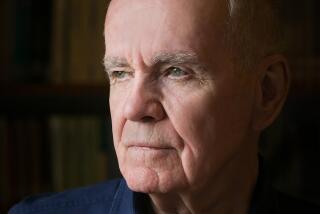Career Hurt by McCarthy-Era Newsletter : Roger DeKoven, 81; Radio, Stage Actor
- Share via
Roger DeKoven, a veteran radio and stage actor whose career suffered when his name was listed in the McCarthy-Era newsletter Red Channels, has died in New York City.
Daily Variety, the entertainment trade paper, reported in its Tuesday editions that the versatile actor was 81, had cancer and had died Jan. 28.
Heard nationally in more than two dozen radio series over a 20-year period, DeKoven was best known to radio historians for the short-lived, but pioneering anti-war saga “Against the Storm.” In it, he played the lead, a “Professor Allen,” who ruminated each week on the evils of war and the pleasures of peace. It was believed to be the first sustaining radio show to adopt an anti-Hitler stand, considered courageous at the time in 1939. Its message became so endearing that President Franklin D. Roosevelt agreed to speak on the program but had to cancel because of Pearl Harbor.
The program remains the only daytime serial to win radio’s coveted Peabody Award.
DeKoven first appeared on stage in Cincinnati in a small role in “A Woman Disputed.” His Broadway debut was in “Juarez and Maximillian,” followed by work in a 1926 production of “The Pirates of Penzance.”
In 1930, he was seen in the George S. Kaufman-Moss Hart success “Once in a Lifetime” and then signed on with the Works Project Administration’s Federal Theatre during the Depression, drawing favorable notice for a part in T.S. Eliot’s “Murder in the Cathedral.”
For the next two decades, he alternated his stage and radio appearances and was heard on such national melodramas as “Amanda of Honeymoon Hill;” “Brave Tomorrow” (as Hal Lambert); “Dimension X,” believed the first radio science-fiction program; “The Eternal Light;” “Famous Jury Trials” (as the narrator); “Gangbusters;” “Myrt and Marge,” and “Yours Truly Johnny Dollar,” one of the last successful network shows.
Back on Broadway, he appeared in “The Assassins,” “Joan of Lorraine” with Ingrid Bergman and the 1954 revival of “Abie’s Irish Rose.”
Daily Variety said he had been forced out of work by Red Channels, a notorious publication of the 1950s that listed the names of suspected Communists and Communist sympathizers. DeKoven said he had to sign a statement denying any links to communism but later denounced Red Channels as “the most vicious kind of un-American slander.”
Later on television, he was seen in “Edge of Night” and in several episodes of “Ben Casey.” His only film was “Something Wild” in 1961.
More to Read
The biggest entertainment stories
Get our big stories about Hollywood, film, television, music, arts, culture and more right in your inbox as soon as they publish.
You may occasionally receive promotional content from the Los Angeles Times.








